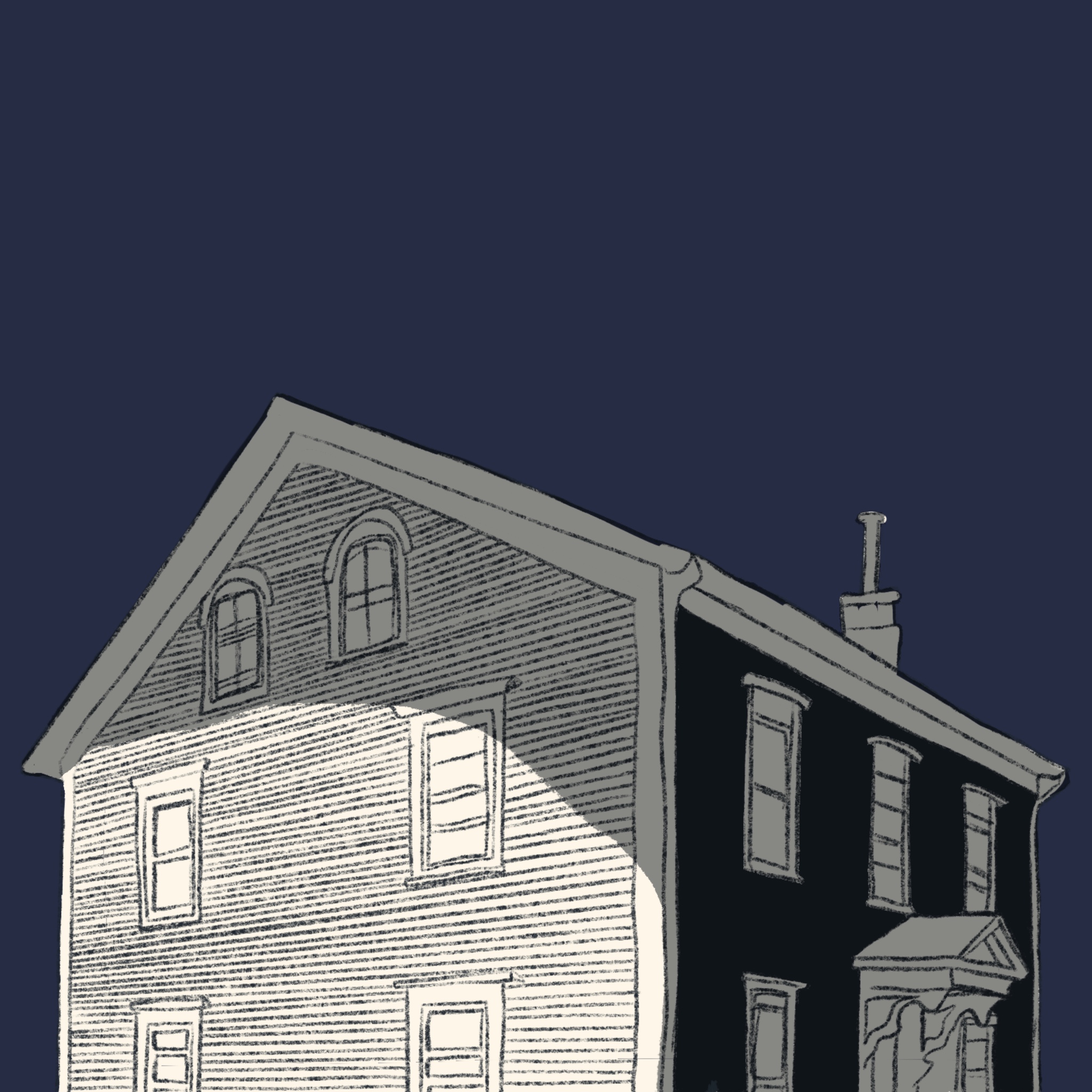Hannah Freeman had a plan. With her wife, she would spend several years saving, apply for a first-time homebuyer loan and stop renting at last.
Their plans changed in July when Rand Property Management bought their Knoxville, Tennessee apartment complex, now named Rand at Tillery. Residents learned Rand planned to raise, and in some cases, double rents at the complex.
After the ownership change, Freeman received a lease renewal offer with a monthly rent of $1,395, including fees, for her two-bedroom unit. That’s a 59% increase from the $880 per month her family has been paying.
“We were thinking $1,100, maybe $1,200, we could push, but up there at $1,400, those extra $200 would kill us,” said Freeman. “That would be everything we’ve set aside for savings right now, and then we would be living paycheck to paycheck.”

Freeman, who has been working with Statewide Organizing for Community eMpowerment to improve renter protections, said Rand at Tillery residents were in the beginning stages of starting a tenants association. Rand didn’t respond to requests for comment for this story.
Meanwhile, the only affordable option that meets her family’s needs is a studio apartment that costs about $1,000 each month—$120 more than what they’re paying now for less space. Freeman and her wife plan to spend about $3,000 to secure and move into the apartment.
“So we’re back at ground zero,” Freeman said.
Tennessee rent growth outpaces incomes
According to the US Census Bureau, the median rent in Tennessee was $951 from 2017 to 2021. Rents have since grown more than 80% based on Zillow estimates, which place the current median rent at $1,750.
At the same time, Tennesseeans have seen comparatively modest income growth. Last year, the state’s median household income was $65,380, up 19% from $54,980 in 2020, Census data shows.
Four Tennessee renters told Streetlight that ballooning housing costs—both to buy and rent—have placed their homeownership goals out of reach. Even renters who received raises during the pandemic said their income wasn’t keeping up with the cost of living in a way that allowed them to save.
Housing advocates said rising rents are also fueling evictions in Tennessee, especially for older adults on fixed incomes.
[ Read more of our housing coverage ]
One of the reasons for the state’s rent growth, they said, is a trend of real estate companies buying apartment complexes and then drastically raising rents and fees.
“These investors understand very well that in a city like Nashville, all you have to do is have an empty unit, paint it, put in new carpet, maybe add some new appliances, do a little landscaping and you can really raise the rents,” said Eddie Latimer, CEO of the nonprofit Affordable Housing Resources.
A housing shortage and high construction costs for new units also have driven up rents in the Nashville area, where the median rent is $2,205, according to Zillow.
For low-income renters, finding an affordable place to rent is tough. A renter earning minimum wage would have to work 97 hours each week to afford rent of about $900 each month, according to a study from the National Low Income Housing Coalition.
Alise Housden is an attorney for the Legal Aid Society of Middle Tennessee and the Cumberlands’ housing practice group in Murfreesboro. She said rent growth has made it more difficult for low-income renters, especially those on fixed incomes, to keep up with rent payments.
In Cannon and Rutherford counties, higher rents have spurred some evictions, Housden said. Those evictions can appear in credit checks and affect renters’ future homeownership opportunities.
“It can be more difficult to get a lender who is willing to lend you money for a mortgage because of your credit history,” Housden said. “You also aren’t able to get a prime (interest) rate.”
In Smyrna, rent increases from an apartment ownership change leave tenants with “no chance to catch up”
Last year, TriWest Multifamily bought Fairway Meadows Townhomes in Smyrna for $33 million, according to a LinkedIn post by TriWest Companies managing partner Omer Ivanir.
Two renters told Streetlight that after the purchase, the complex began renovating empty units and raising rents and fees for current tenants. The renters expressed concerns they aren’t benefiting from renovations and said rent increases will limit their ability to save to buy a home.
TriWest, based in El Segundo, California, and the complex’s property manager, ZRS Management in Orlando, Florida, didn’t respond to requests for comment.
In December, the apartment’s management created a mandatory trash valet service, which costs $25 each month. The renters said they didn’t want the service or the monthly fees for it.
[ Read more: Rising rental fees are feeding evictions and homelessness ]
Fairway Meadows also requires renters to buy a renters insurance policy, which costs about $150 per year, according to NerdWallet.
One Fairway Meadows renter said the rent for their three-bedroom unit was $1,050 each month before recently renewing their lease for $1,390, including fees—a 32% increase.
Before signing, they wrestled with covering the rent increase at Fairway Meadows or moving somewhere more affordable and potentially pulling their kids into a new school.
“We feel trapped,” the renter said. “The goal has been to buy a place, but it seems more and more out of reach.”
Another Fairway Meadows renter said this year the rent for their three-bedroom unit rose $200 to $1,200 a month.
Based on their neighbors’ rent hikes, they expect their next lease offer to include an even bigger rent increase. When their lease ends, they plan to move out of state to live with family.
The renter said that during renovations at Fairway Meadows, the complex towed their vehicle for parking over a parking space line. The renter said it cost them $225 and they had parked over the line to avoid broken glass and other materials in the parking lot from the renovations.
“In general, I feel like the new owners are doing everything they can to push out old residents like us so that they can turn the units over and make a mint on new tenants,” the renter said.
The tenant added that when home prices and rents began to soar, “we realized we had no chance to catch up with things as they are, not to mention that there are very few houses actually for sale in this area.”
Renters are saving less for more expensive homes
When Tom Ruggles moved to Knoxville from Cleveland, Ohio in 2020, one of the advantages was the city’s less expensive housing. He leased a one-bedroom unit at The Hammond, an apartment complex run by Rand Property Management, for $780. Three years later, he’s paying more than $1,000 each month and expects that number to continue rising.
[ Read more: A Knoxville landlord pressured a local news station to remove an article about a steep rent hike, email shows ]
At the same time, his savings goal is a moving target, as Knoxville home prices have increased to historical levels in the past few years. Last year, home prices in the Knoxville area rose 16%, according to a May report from the Knoxville Area Association of Realtors.
“Not only is the higher rent keeping me from saving more, buying costs so much more than it did a couple years ago, so it’s kind of squeezing me from both ends,” Ruggles said.
Angie Ezell, homeowner services manager for Rutherford County Area Habitat for Humanity, said that during the past several years, the number of applicants for the nonprofit’s homeownership program has almost doubled. She attributes the increase to higher rents in Rutherford County.
For homebuyers seeking a conventional mortgage, Ezell said the high cost of construction and sale prices could make it harder to find a house in their price range.
“It’s so expensive,” she said. “What used to cost $90,000 to build now costs $400,000 to build.”
Latimer said the high cost to buy land holds back developers from building houses that are affordable for first-time homebuyers. Land prices in the Nashville area are geared for houses that sell for $800,000, he said, but homebuyers often qualify for loans that are closer to $250,000 or less.
“So the issue is, the land is too expensive to build anything on that the workforce can afford,” Latimer said.
Chipping away at these issues is no easy feat. But Latimer thinks local stakeholders could make progress by working together.
“Until the industry figures out a way to coordinate themselves,” he said, “we’re not going to be able to make a dent. We need the government, nonprofits and for-profit tax-credit developers … involved in fixing the problem because everybody right now is still doing business as if they were doing it in 2015, and it’s just not a 2015 environment.”
Connect with the resources mentioned in this story
- Learn more about Affordable Housing Resources and its rental assistance program.
- Learn more about Rutherford County Area Habitat for Humanity’s homeownership program or how to volunteer. Find a Habitat for Humanity organization in your area.
- Learn more about the Legal Aid Society of Middle Tennessee and the Cumberlands’ legal assistance and how to volunteer.
- Read Statewide Organizing for Community eMpowerment’s Knox County eviction defense guide.
Contact Streetlight editor Mollie Bryant at 405-990-0988 or bryant@streetlightnews.org. Follow her reporting by joining our newsletter.
Streetlight, previously BigIfTrue.org, is a nonprofit news site based in Oklahoma City. Our mission is to report stories that envision a more equitable world and energize our readers to improve their communities. Donate to support our work here.



